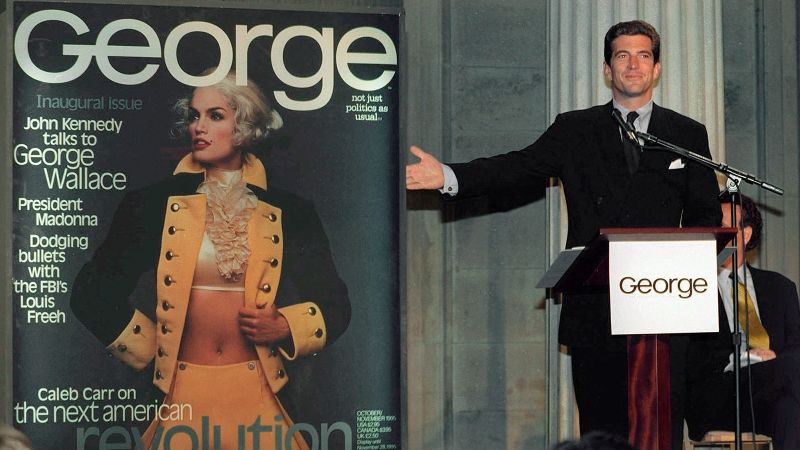
The Influence of Magazines on Society: A Reflection on 'George' Magazine
Culture | 8/16/2025
In the heyday of the magazine industry, John F. Kennedy Jr. ventured into the publishing world with his magazine “George.” This publication, like many others at the time, aimed to capture the essence of a luxurious and giddy era dominated by print media. Top magazine editors and writers reflect on this period when magazines held significant cultural influence and shaped public discourse.
During this era, magazines played a pivotal role in shaping societal narratives and influencing public opinion. “George,” in particular, embodied Kennedy’s vision of a publication that blended politics, culture, and celebrity in a unique and captivating manner. Its brief but impactful presence symbolized the dynamism and creativity that characterized the magazine landscape at the time.
The evolution of magazines and their influence on society reflect a bygone era when print media reigned supreme in the realm of information dissemination. While the digital age has transformed the media landscape, the legacy of magazines like “George” remains a testament to the power and allure of the printed word.
Reflecting on this era offers insights into the cultural and historical significance of magazines as drivers of public discourse and arbiters of style and taste. The rise and fall of publications like “George” underscore the ever-changing nature of media consumption and the enduring impact of innovative storytelling in the journalistic landscape.
Despite the shift towards digital platforms in today’s media environment, the era when magazines held sway over public opinion and cultural trends remains a compelling chapter in the history of journalism. As the industry continues to adapt to evolving technologies and consumer preferences, the legacy of magazines that once ruled the world serves as a reminder of the enduring power of storytelling and the influence of print media on society.


